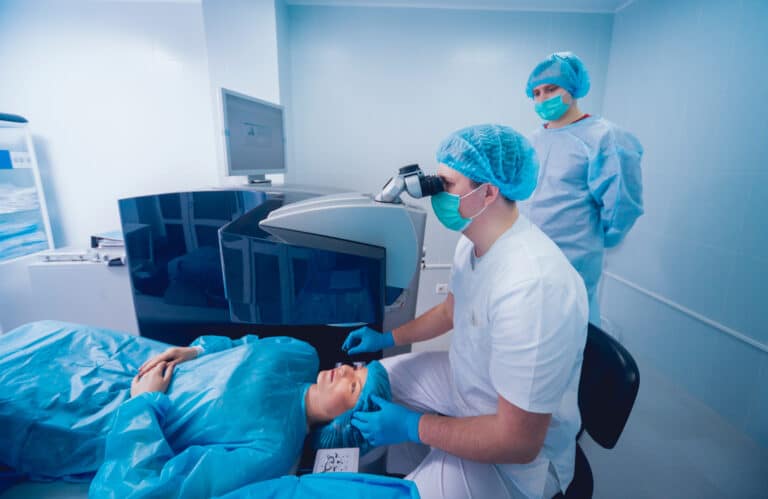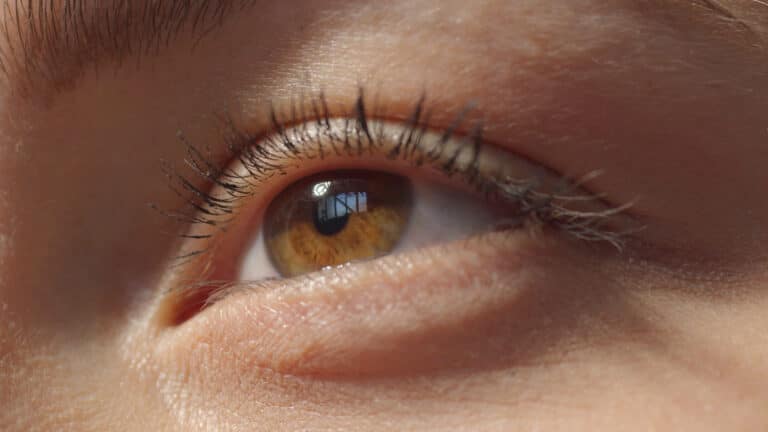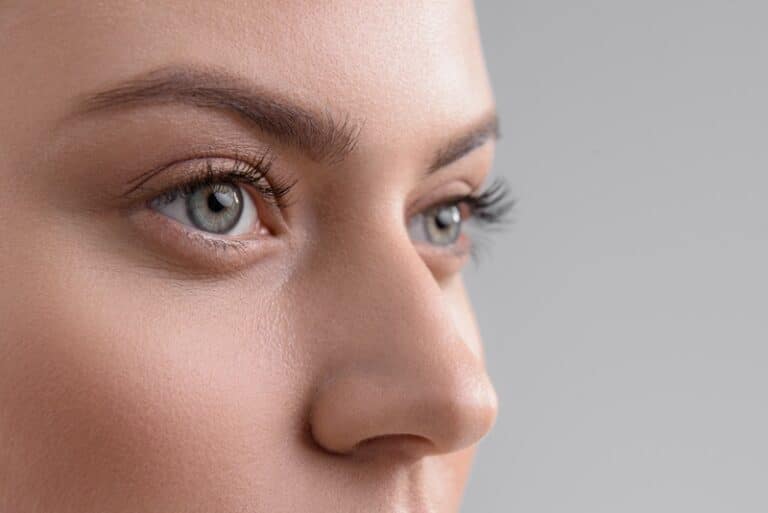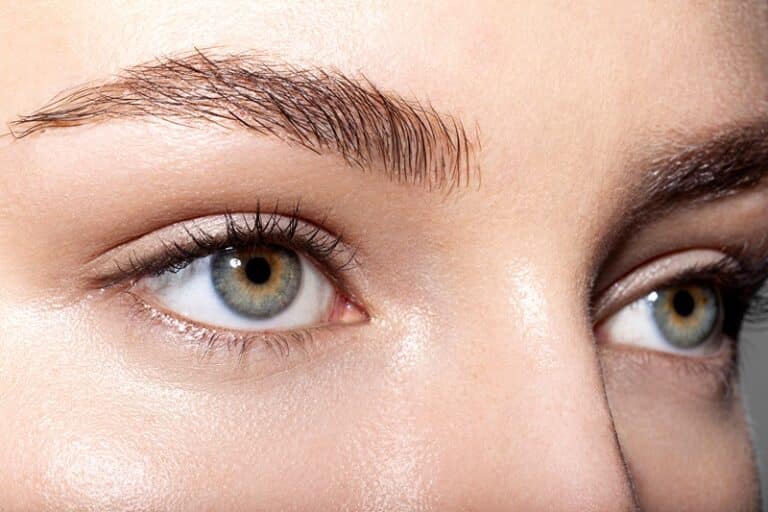What is PRK?
Many people have heard of LASIK, but other treatments can give you clear vision and may work better for you. PRK offers an option for many people who cannot have other types of laser vision correction. This procedure has a lower risk of complications and provides excellent results. You may even be able to stop wearing glasses or contact lenses.
What is PRK?
PRK (photorefractive keratectomy) is a type of laser eye surgery. Your Vold Vision team performs LASEK, a laser-assisted version of the procedure. PRK is an option for people who cannot have other types of laser eye surgery. It can treat myopia (nearsightedness), hyperopia (farsightedness), and astigmatism. PRK does not leave a flap or incision in the cornea, reducing the risk of side effects.
This procedure works by changing the shape of your cornea. This clear structure changes the angle of light as it passes through. If you have a refractive error, light does not focus on the back of your eye, leading to blurry vision. PRK, like other types of laser eye surgery, uses a laser to adjust the cornea’s shape so light focuses correctly.
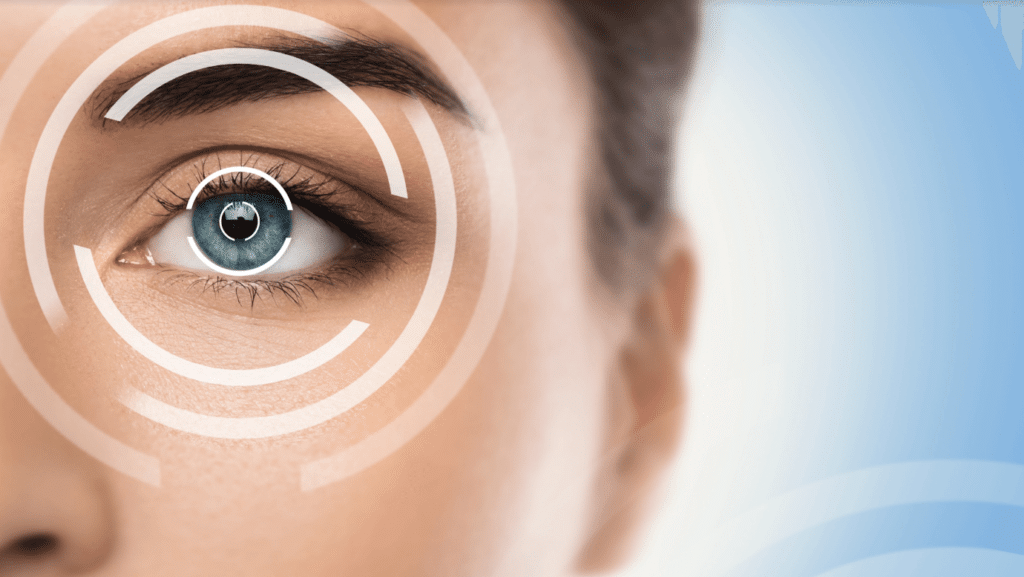
How Does PRK Laser Eye Surgery Work?
PRK begins with numbing your eyes so you do not feel anything, but you can also choose to have a sedative if you feel anxious. Your surgeon treats the cornea’s epithelium (outer cell layer) with alcohol to temporarily separate it. The laser quickly removes microscopic layers of corneal tissue, reshaping the cornea in under a minute. This laser is the same one used in LASIK and other types of laser eye surgery, and the corneal reshaping process is nearly the same. The epithelial cells are replaced, resulting in faster healing.
Am I a Good Candidate for PRK?
PRK has a slightly longer recovery time than other types of laser eye surgery. However, it makes an excellent choice for the right candidate. You may be a good candidate for PRK if:
- You have hyperopia, myopia, or astigmatism
- You have thin or abnormally shaped corneas
- You engage in contact sports that could dislodge a flap like LASIK creates
- You have a physically active or strenuous job
- You have dry eye symptoms that could be worsened by LASIK
PRK does not make any incisions in the cornea. Instead, the entire corneal epithelium heals. LASIK creates a flap in the cornea that can become damaged or worsen dry eye symptoms. People at risk of these issues may be excellent candidates for PRK.
Request a Consultation
We’d love to help you get all the information you need in order to make the best choice for your eyes. Request a consultation today! Our staff is available and happy to answer your every question.
What is Recovery Like After PRK?
You will experience blurriness, sensitivity, and glare or haloes around lights for several days after PRK. Your surgeon will prescribe medications to help your eyes heal and keep you comfortable. These effects will improve significantly after the first few days. Avoid sun exposure and areas with smoke, dust, or other airborne particles during healing.
Your vision will improve quickly after the first few days, and things will become much less blurry. Most people can return to work after four to five days. Full results can take one to three months to develop. You may have light sensitivity for four to six weeks after your procedure. The LASEK version of PRK has less recovery time than traditional PRK methods.
What Results Will I See With PRK?
Your vision can take a few months after PRK to stabilize fully. Light sensitivity is usually gone within six weeks. People with PRK may see decreased glare compared to those with other types of laser eye surgery. Most people who get PRK will not need glasses or contact lenses the majority of the time. Some people may no longer need them at all.
While the changes resulting from PRK will last a lifetime, your vision will still change as you age. People over 40 develop presbyopia, a hardening of the lenses that makes it difficult to read or see objects close to you. Most people eventually develop cataracts, age-related clouding of the lenses. Your Vold Vision team offers treatment options for both conditions to let you see clearly regardless of age.
Take the Next Step
You’ll benefit not only from the latest technologies available but also from our compassionate, personal approach. You’re more than a patient at Vold Vision in Bentonville and Fayetteville. We strive to make you as comfortable as possible while evaluating the optimal treatment plan just for you. We invite Fayetteville, Rogers, Bentonville, and Springdale residents to contact us today for a consultation at (479) 442-8653.

